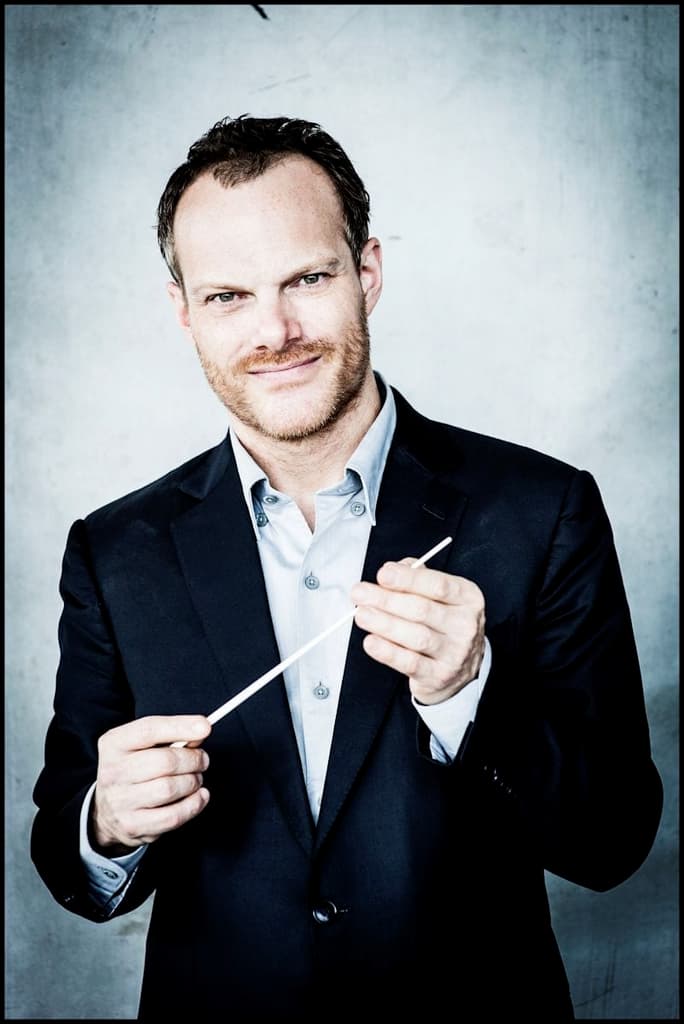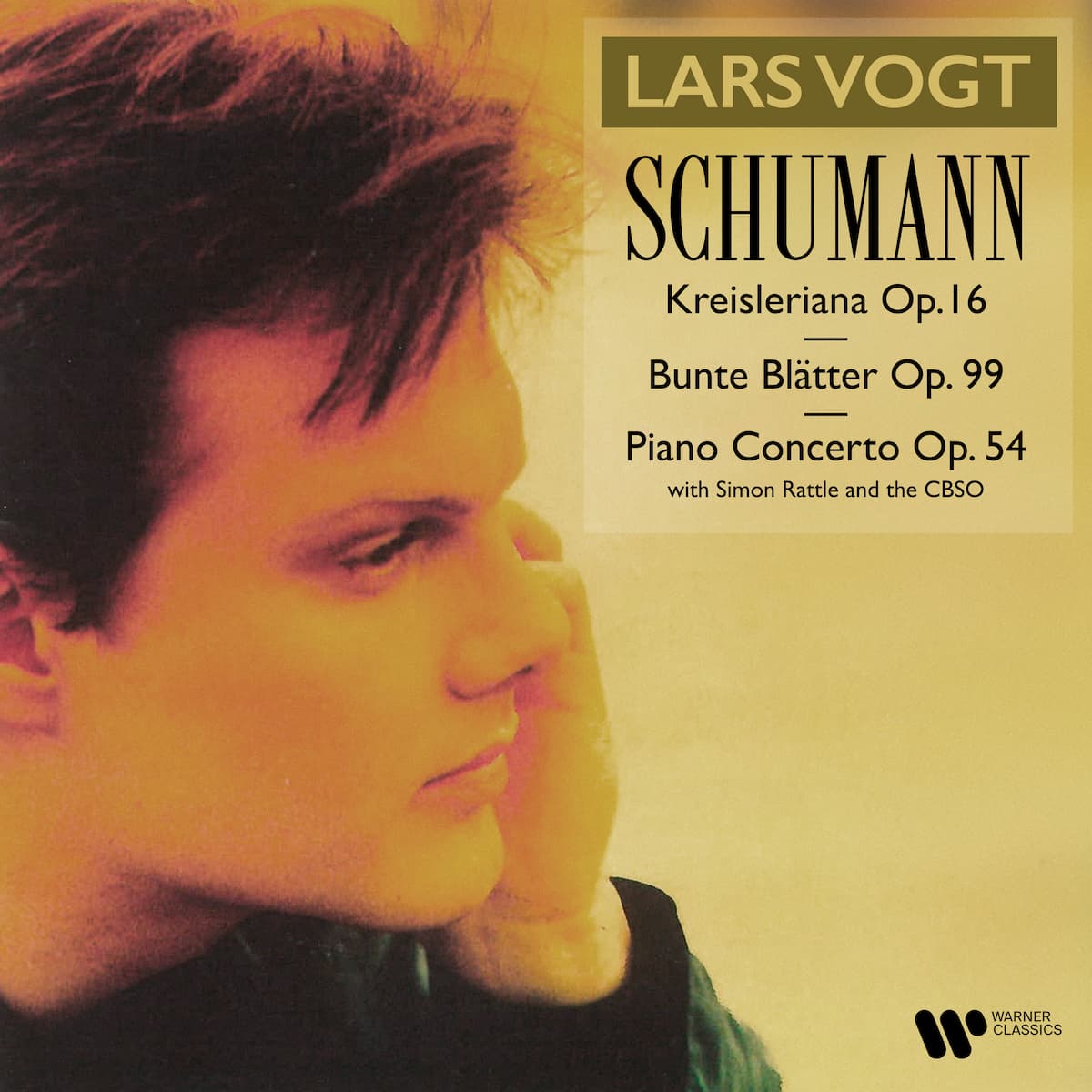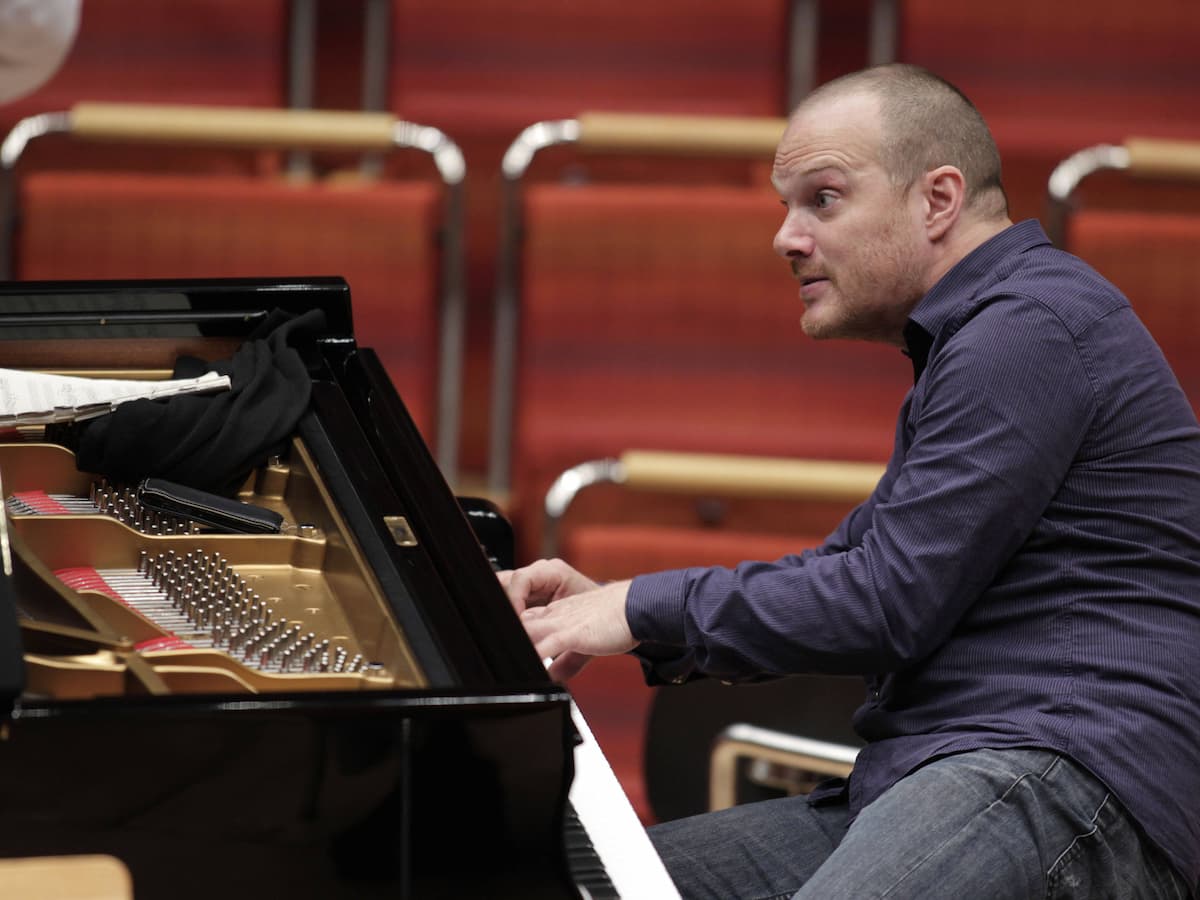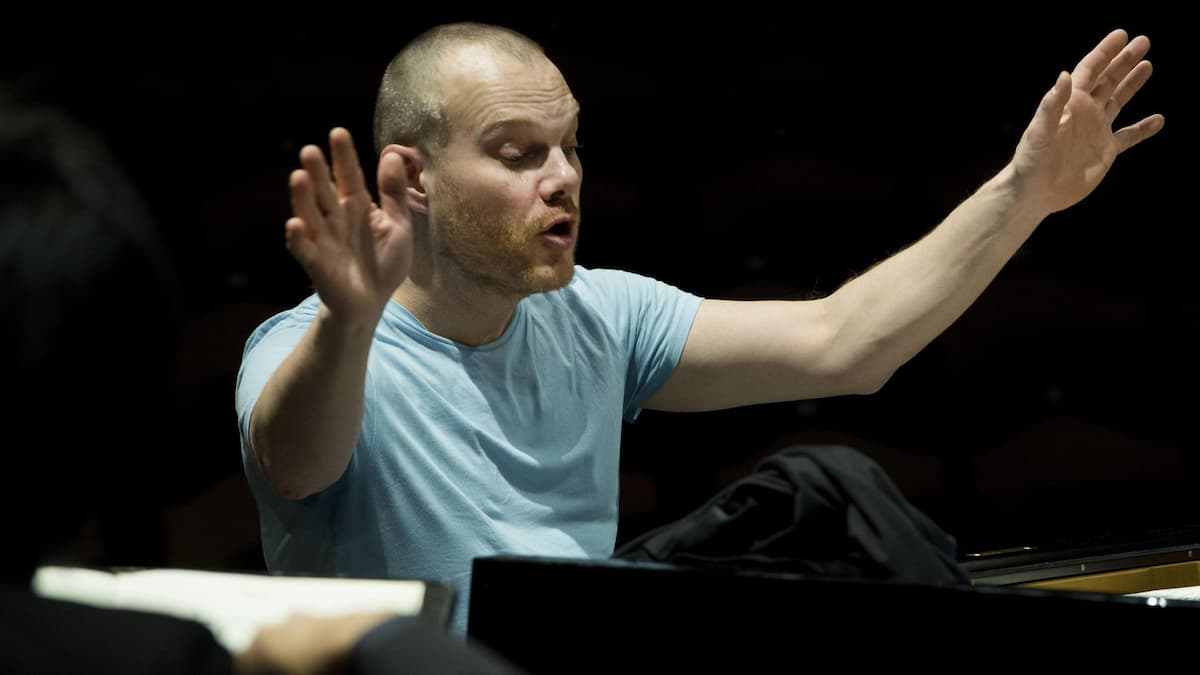On 5 September 2022, the German pianist and conductor Lars Vogt succumbed to oesophageal cancer at the age of 52. He came to prominence after taking second prize at the 1990 Leeds International Piano Competition, bringing exceptional sensitivity and lyricism to his performances. The New Yorker described him as “a musician of rigorous but unshowy virtuosity and distinctive intelligence, but also, and above all, a profound humanism and a deep moral and emotional imagination.”
Lars Vogt Plays Brahms’ Drei Intermezzi, Op. 117
Childhood

Lars Vogt
Lars Vogt was born on 8 September 1970 in Düren, just west of Cologne in North Rhine-Westphalia, as the youngest of three children. His mother was a secretary, and his father was an engineer, who, as a young man, funded his studies by playing professional football. As Vogt recalled, “as a child, I was just as interested in the playing field as in the concert hall.” However, a teacher in Aachen noticed that Lars had some special musical talents.
As Vogt recalled, “She felt very quickly that there was something there, and she took me out of the group and said, ‘O.K., I need you for solo lessons.’” Vogt continued, “When she noticed that I was talented, she started to take me to the concert, gave me cassettes with recordings and already at an early stage putting the thought in my head that if I would practice, I could become a pianist.”
Felix Mendelssohn: Capriccio brillant, Op. 22, MWV O8 (Lars Vogt, piano; Orchestre de Chambre de Paris; Lars Vogt, cond.)
Studies and Breakthrough

Lars Vogt early recording
Vogt made incredible progress, and after winning a national competition, he started taking a four-hour train to Hanover twice a month to study with the legendary pedagogue Karl-Heinz Kämmerling. He would continue to take lessons until Kämmerling’s death in 2012, and eventually succeed him as professor of piano at the Hanover University of Music, Drama, and Media.
Vogt took part in the 1990 Leeds International Piano Competition and placed second. While first prize went to Artur Pizarro, Vogt impressed with a mercurial Haydn and Mussorgsky’s Picture at an Exhibition that “combined subtlety and grandeur.” Most outstanding, Vogt astounded with an intense and introverted performance of the Schumann concerto under the baton of a youthful Simon Rattle. Apparently, Rattle suggested that “In 10 years, you will be a conductor. You have a conductor’s brain.”
Lars Vogt Plays Schumann’s Piano Concerto in A minor, Op. 54
Rhapsody in School

Simon Rattle’s prophecy did come true, and Vogt regularly appeared on the podium without relinquishing his place at the keyboard. In 2003, Vogt became the first pianist in residence at the Berlin Philharmonic, but he had even bigger plans. In 2005, he founded the initiative “Rhapsody in School.” The project looked to create personal and up-close encounters between student and professional musicians “geared to ignite the next generation’s curiosity and passion for classical music.”
As Vogt explained in an interview, “Many musicians, like myself, were not fond of our experiences with music lessons taught at school. Real inspiration happened through personal encounters with performers at concerts or, better yet, in personal conversations. Meeting musicians inspired enthusiasm to learn more about the craft and integrate music into our lives.”
Leoš Janáček: V mlhách (In the Mists), JW VIII/22 (Lars Vogt, piano)
Spannungen

Several years earlier, in 1998, Vogt and his first wife, the Russian composer Tatiana Komarova, established a cutting-edge chamber music festival titled “Spannungen.” Roughly translated as excitement of tensions, the festival took place in a converted art nouveau hydroelectric power station in the village of Heimbach near Cologne.
Every summer, the power station turned into a concert hall. A commentator reports, “Makeshift curtains and carpets are brought in to improve the acoustics, adding to the venue’s simplistic character and providing a perfect framework for the high-voltage music-making and cross-pollinating cultural programs that pull audiences into the festival every season.” Both initiatives were rooted Vogt’s belief that “music must be an emotional experience: It has to touch your soul.”
For more of the best in classical music, sign up for our E-Newsletter
J.S. Bach: Goldberg Variations, BWV 988 (Lars Vogt, piano)
